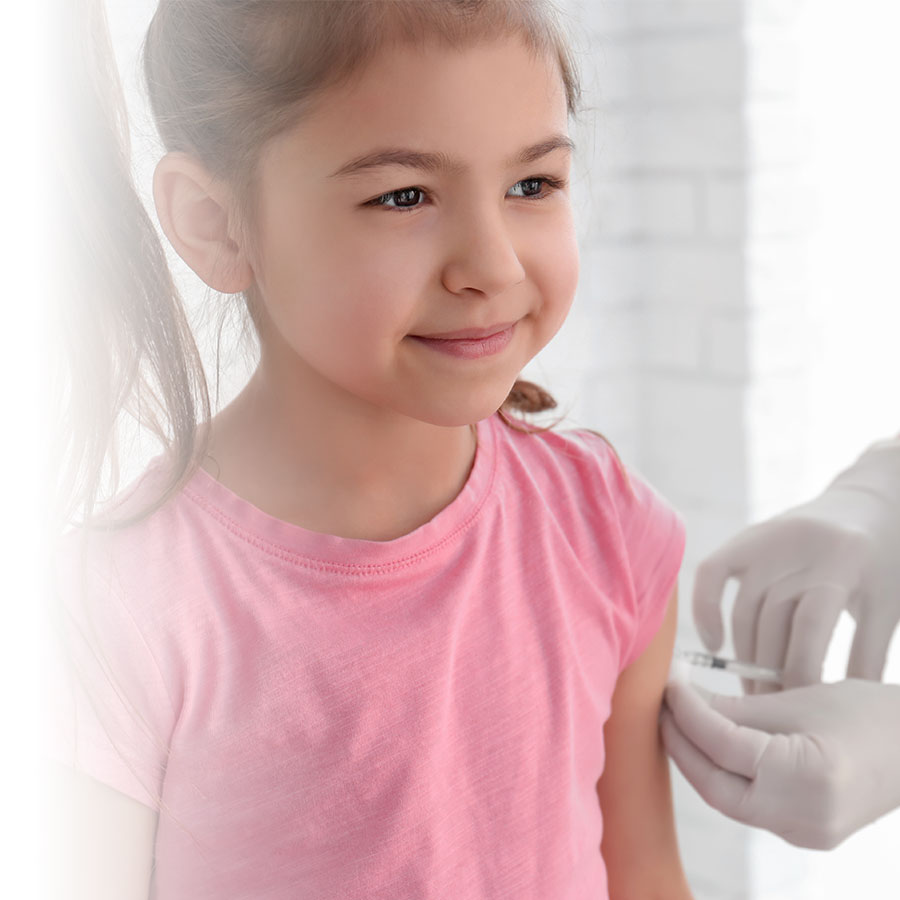Although vaccination is one of the most significant medical advances, it is still quite controversial. It is important to distinguish between the true and the false!
Vaccination: a controversial topic
Vaccination made it possible to eliminate a great number of diseases that wreaked havoc on the population. Today, who knows diseases such as diphtheria or poliomyelitis?
Unfortunately, misconceptions regarding vaccination drives some people to refuse it. These often unnecessarily alarming ideas about vaccination impede informed and responsible decision-making, thereby compromising community health. The effectiveness of vaccination programs relies on the participation of the entire population.
It is important to be well-informed about vaccination to be able to recognize the myths surrounding the subject. Accurate information enables us to make the right choices to protect our health and that of our children.
Here are a few statements being made about vaccines.
"Vaccines are linked to the development of chronic diseases."
Vaccines are among the safest tools used in medicine. Nevertheless, they are often held responsible for diseases such as autism, multiple sclerosis, sudden infant death and asthma. Yet, this is false.
The misconception that there is a link between vaccination and the growing occurrence of diseases continues to circulate in the general public despite the large number of studies proving the contrary. Several anti-vaccination internet sites continue to fuel this idea, causing mounting concern within the population. Therefore, it is important to remain vigilant and to ensure that this information is analyzed properly by validating it with reliable sources.
"Vaccines are not effective."
Vaccines are very effective. Owing to vaccination programs, many diseases are now very rare, and some have practically been eradicated. For instance, smallpox has been completely eradicated and the measles are now very rare.
However, some vaccines may not be 100% effective. In these cases, some people can contract the disease that they were vaccinated against. The fact remains that people who have not been vaccinated against a given disease definitely have a higher risk of contracting it.
Vaccination remains the most effective method of preventing disease. Being vaccinated reduces the risk of spreading a disease to people around us, who are sometimes more vulnerable than we are.
"Vaccines have many side effects."
Like any type of medication, vaccines can have side effects, which are often minor and transient, the most common ones being redness, pain or swelling at the injection site, and fever. You can talk to your pharmacist to obtain information on how to relieve these symptoms.
Serious side effects are very rare. Allergic reactions are among these side effects. An allergic reaction can occur after the vaccine has been administered just as it can after having ingested any foreign substance. However, the risks remain low.
“Vaccines weaken the immune system.”
In fact, it is quite the opposite. The immune system is exposed to millions of germs and vaccination only mobilizes a fraction of its resources. Therefore, it would be a mistake to believe that it could weaken or overtax the immune system.
To some extent, vaccination prepares the immune system to react to a given disease. It stimulates the immune system to produce antibodies in the event of potential exposure to a pathogen. Thus, vaccination strengthens the body’s defences.
“Vaccines contain several toxic substances.”
Vaccines have several components and some of them have attracted a lot of attention. Take, for example, thimerosal. This product, which is sometimes used in the preparation of vaccines, is mistakenly believed to be responsible for autism and developmental disorders.
Thimerosal is a preservative which contains a minute quantity of a form of mercury which does not accumulate in the body. Manufacturers of the vaccine seek to reduce its use just the same. Vaccines currently administered in Canada have a very low thimerosal content or none at all.
Moreover, vaccines are now purified much more than before. The quality of manufacturing processes has greatly evolved. Therefore, there is a world of a difference between vaccines manufactured today and their predecessors. All vaccines must comply with very strict manufacturing standards set by Health Canada, and their quality and safety are under constant close monitoring.
The role of a pharmacist
Pharmacists can answer your questions about vaccination and help you to make an informed decision. They can also direct you to the appropriate resources. Your baby’s first vaccines can raise certain concerns, but they are very important. Fear of side effects can deter some parents, but the risks of disease, especially for babies, are significant. Your pharmacist can help you relieve the possible side effects of vaccination.
Some pharmacies offer a vaccination service by a nurse. For instance, it is possible to get vaccinated against influenza, pneumococcal infection, hepatitis, HPV infection, and shingles. Contact your pharmacy to find out if this service is available.
If you have concerns about vaccination, know that this is completely natural and even preferable. This is indicative that you take your health or that of your loved ones very seriously! So, don’t hesitate to ask your pharmacist as many questions as necessary, such as:
- What are the benefits of the vaccine? What does it prevent?
- What consequences can the refusal of the vaccine have on me, on my child, or on those around me?
- What are the most common side effects?
- Does the vaccine have any short-term or long-term risks for the person receiving it?
In addition to answering your questions, the pharmacist will probably give you some documentation to carefully read at home. Being well-informed will reassure you, regardless of your decision!


